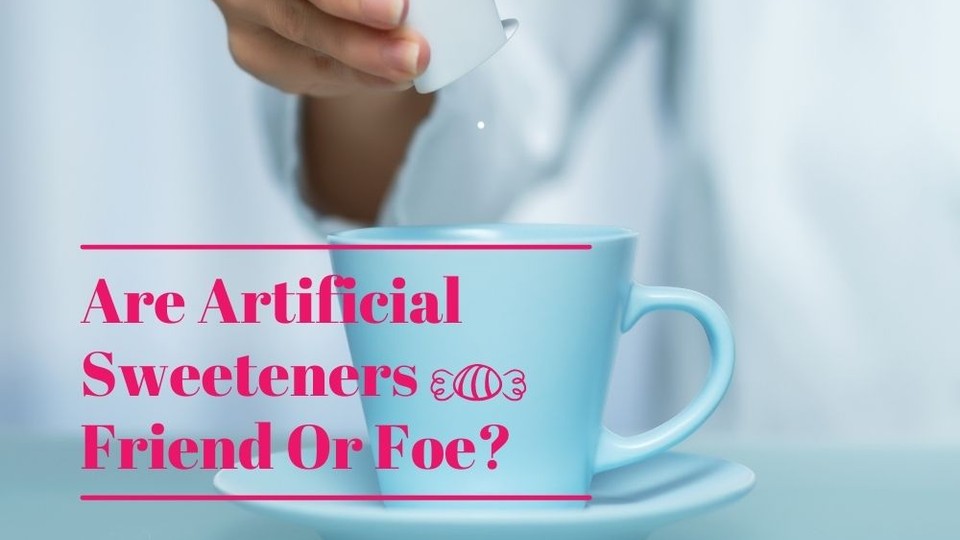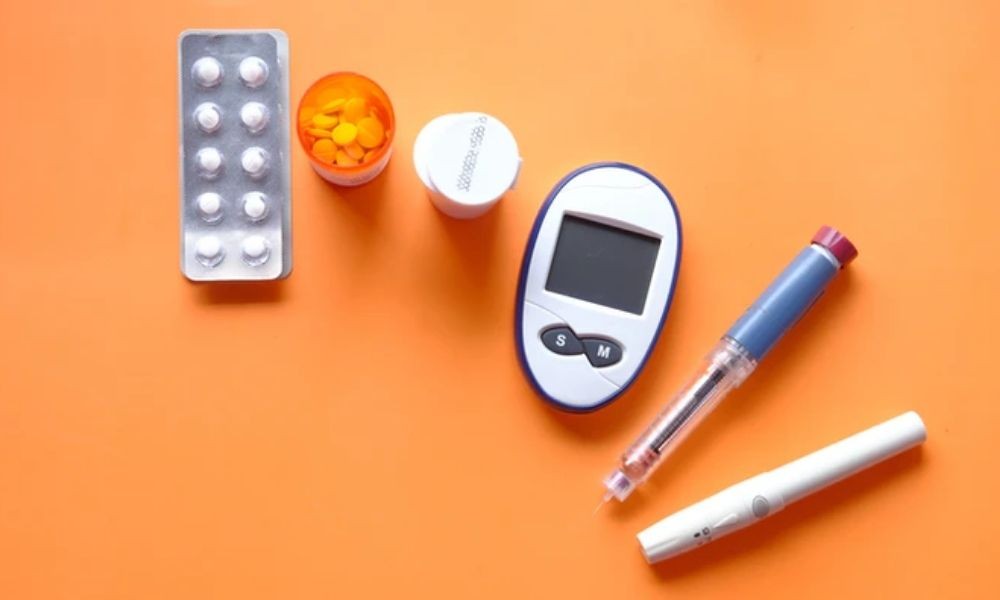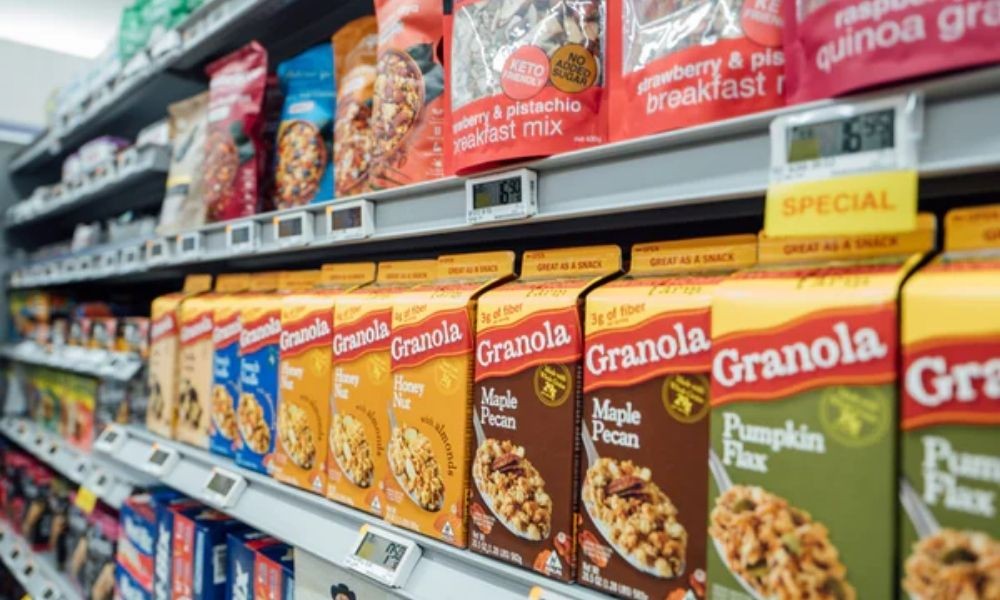
Artificial sweeteners are growing in popularity as people believe they bring about several health benefits, including weight loss, better blood sugar control, and reduced risk of heart disease. On the other hand, others remark that these sweeteners pose a risk of dangerous side effects such as cancer, and these claims have been spreading like wildfire. So, which is the case?
You may have multitudes of questions today surrounding the health effects and safety profile of various artificial sweeteners. By assembling this article, we hope to answer them and equip you with an arsenal of evidence-backed information, so you can make the best-informed choices while you’re strutting down the supermarket aisle!
What Are Artificial Sweeteners?
There are many different types of sugar substitutes in the market. These sweet-tasting chemicals replace your regular table sugar (sucrose) and are commonly added to beverages and foods. While there are various sugar substitutes, such as natural sweeteners and sugar alcohols, artificial sweeteners also fall under that same category.
Artificial sweeteners are also known as non-nutritive sweeteners. They’ve also earned the name ‘intense sweeteners’ as they are hundreds to thousands of times sweeter than your average table sugar! Hence, only a minuscule portion of artificial sweeteners (amounting to zero calories) is required to boost the sweetness of foods and drinks.
As a result, artificial sweeteners are a popular sugar substitute that has garnered the interest and approval of many people, including those with diabetes. These individuals are keen on cutting down their daily calorie and sugar intake to improve their health.
Different Types Of Artificial Sweeteners
According to the NSW Government, some of the most commonly used artificial sweeteners in Australia include the following:-
- Aspartame
- Acesulfame potassium
- Alitame
- Cyclamate
- Neotame
- Saccharin
- Sucralose [1]
Foods Containing Artificial Sweeteners
During your grocery trips, you may have noticed that artificial sweeteners are sold in several forms, including powder, tablets, and liquid. These are marketed as zero-calorie sweeteners that you can pop into your food or drinks to enhance taste and flavour without those dreaded calories.
Additionally, numerous foods, including candy, puddings, jam, jellies, dairy products, baked goods, soft drinks, powdered drink mixes, diet sodas, chewing gum, desserts, and canned foods, may contain artificial sweeteners. One way to tell is by inspecting nutritional labels on packages to check if any artificial sweeteners are included in the ingredients list.

We will share some quick and practical tips on better understanding these nutritional labels further down the article!
Possible Benefits Of Artificial Sweeteners
Weight loss
Weight loss is one of the most popular reasons that beckon people to favour artificial sweeteners over conventional high-calorie table sugar. As weight-loss and fad diets rise steadily in popularity, zero-calorie foods and drinks are garnering the interest and approval of many as a simple solution to tackling weight gain and obesity.
According to a meta-analysis, the results from randomised controlled trials (rigorous methods of scientific study) associate the usage of artificial sweeteners with weight loss. Hence, artificial sweeteners may be a practical tool in body weight maintenance plans and weight reduction strategies. [3, 4]
However, these sweeteners are not appetite suppressants, and ultimately, the amount of weight loss you achieve will depend on a more holistic approach. In other words, artificial sweeteners are efficacious for weight loss only when incorporated as part of an energy-reduced diet. [4, 5]
Hence, your net calorie intake matters. Unfortunately, there is a slim chance of weight loss or BMI reduction if you opt for one item with no calories and then compensate for any cravings by overeating or binging on various high-sugar foods. So if picking up a diet soda encourages you to justify gobbling down a tub of chocolate-loaded high-calorie ice cream, any possible calorie savings will be negated, and this will diminish your chances of weight loss.
Diabetes and blood glucose control
The American Diabetes Association noted that limiting carbohydrates, including added sugars, is one of the most crucial strategies to attaining better blood glucose control. Hence, many people with diabetes have adopted artificial sweeteners into their daily meals as they provide that blissful sweet taste without accompanying blood sugar spikes.

A handful of studies have supported these claims, though researchers explain that any benefit of artificial sweeteners on blood sugar control is likely due to the replacement of carbohydrates by those sweeteners, rather than a direct blood-glucose-lowering effect. [6, 7]
Because foods and beverages that contain plenty of carbs and sugar can lead to undesirable spikes in blood sugar, replacing those with sugar-free options may prevent those increases in blood glucose levels. This is because artificial sweeteners do not affect the body’s glycemic response and thus, do not raise blood sugar levels post-consumption. [6]
Reactive hypoglycemia
Some individuals experience reactive hypoglycemia, which is a low blood sugar level post-prandial. These individuals produce excess insulin triggered by quick glucose absorption into the bloodstream after they have eaten.
Because of this, people who experience reactive hypoglycemia are advised to adopt several dietary changes that share similarities with a diabetic diet. For instance, it is recommended that they avoid foods high in sugars and simple carbohydrates such as white bread or white pasta.
Artificial sweeteners are a suitable alternative to high-sugar and high-carb foods, and hence, a fantastic option for people with reactive hypoglycemia. [8, 9]
Dental health
People believe that replacing table sugar (sucrose) with artificial sweeteners will help you maintain those pearly whites and keep tooth decay at bay! And indeed, research findings have supported these claims.
Sucrose, or your conventional sugar, is fermented by microorganisms present in your mouth, leading to acid production, which can cause tooth decay or dental caries. [10]
On the other hand, artificial sweeteners are considered non-cariogenic, meaning that they are not fermented or metabolised by these microorganisms. Therefore, they do not lead to acidic waste production, a drop in oral pH, or tooth decay. In short, artificial sweeteners cannot cause dental caries. [10, 11]
For this reason, artificial sweeteners have been incorporated into toothpaste, chewing gums, and medications for the pediatric population.
Risks And Side Effects
Currently, there are popular beliefs that artificial sweeteners can cause detrimental health effects, such as an increased risk of cancer.
Cancer risk
Heated debates discussing the link between artificial sweetener consumption and increased cancer risk have emerged since the 1970s. This popular belief sprouted due to the finding of an animal study in that period, which concluded that mice being fed enormous amounts of saccharin (an artificial sweetener) eventually developed bladder cancer.
However, there are many limitations to this animal-model study because rats and humans do not metabolise saccharin in the same way. In fact, to this date, no published human study has successfully shown a strong correlation between cancer in humans and the consumption of saccharin. [15]
On top of that, multitudes of human studies conducted for more than ten years did not find any conclusive link between artificial sweetener intake and the development of various cancer types. [16, 17]
However, one artificial sweetener, cyclamate, is banned in several countries. It was banned by the U.S. Food and Drug Administration (FDA) due to that 1970 rat and bladder cancer study. Till today, the ban in the U.S. has yet to be lifted. However, subsequent studies inspecting the cancer risk of cyclamate failed to provide explicit evidence of any association. [18]
Hence, the Joint FAO (Food and Agriculture Organization)/WHO (World Health Organization) Expert Committee on Food Additives (JECFA) has set into place an ADI (acceptable daily intake) of 11 mg/kg body weight for cyclamates. Furthermore, Food Standard Australia New Zealand has also directed a safety assessment of cyclamates. At this ADI, they have concluded that this artificial sweetener is very unlikely to escalate cancer risk. [14]
In short, as long as the ADI of artificial sweeteners is not exceeded, it is unlikely you’ll get cancer due to their intake. [14]
Side effects
Currently, artificial sweeteners are deemed safe and suitable for consumption within the stated ADI as extensive scientific research has substantially demonstrated their safety. [18]
Despite this, a handful of long-term studies have raised concerns that the intake of artificial sweeteners may lead to health problems such as obesity, type 2 diabetes, and heart diseases and alter the composition of your gut microorganisms. [19]
Nevertheless, these claims have yet to be conclusively proven. [19]
Precaution with use
For specific individuals, it is best to steer clear of artificial sweeteners.
For instance, saccharin is categorised under a class of compounds known as sulfonamides. Hence, individuals who are allergic to sulfonamides should avoid saccharin consumption as this may trigger allergic reactions such as rashes, skin problems, diarrhoea, and breathing difficulties. [20]
Additionally, people with a rare condition known as phenylketonuria (PKU) should avoid aspartame. These individuals cannot metabolise phenylalanine, an amino acid present in aspartame, leading to the buildup of dangerously high phenylalanine levels in the brain. [21]
Acceptable Daily Intake (ADI) of Artificial Sweeteners
The acceptable daily intake indicates the maximum amount of a certain food additive you can safely consume every day without the emergence of adverse effects. The acceptable daily intake of artificial sweeteners varies as per the table below. [12, 13, 14]
Name
ADI (milligrams per kilogram BW per day)
Aspartame
50
Acesulfame potassium
15
Cyclamate
11
Neotame
0.3
Saccharin
15
Sucralose
5
Reading The Nutritional Label
Imagine this. As you stroll down the supermarket aisle, food packages adorned with eye-catching label claims beckon you to grab and drop multiple packets into your shopping cart. “Want to lose weight? I’m zero-calorie!” “On a low-carb and low-sugar diet? I’m sugar-free!”

Unfortunately, these labels claims may not tell the whole truth. Does “no added sugar” really mean that the product contains no sugar at all?
Here’s what these labels actually mean.
Sugar-free
This label indicated that the product contains less than 0.5 grams of natural and added sugar per serve. However, if you’re on a diabetic diet, you should also consider the number of carbs present in the product. [23]
In other words, the “sugar-free” claim should not be the sole driving factor for your purchase. Compare that product with the regular variation, and see which contains fewer carbs. If the sugar-free product contains significantly lower carbs, it may be the healthier option, but do a quick inspection of the entire ingredients list to make the best-informed choice. [22]
Additionally, sugar-free products may contain artificial sweeteners or sugar alcohols that manufacturers have incorporated to enhance the flavour and taste. Some sugar alcohols, such as sorbitol, xylitol, and mannitol, may lead to digestive issues for some and are not necessarily low in carbs or calories. [22]
No added sugar
The “no added sugar” label indicates that no sugar or ingredients containing sugar were added during the packaging and manufacturing process. Hence, as long as sugar was not manually added during the process, the product may sport this claim.
Nevertheless, these products may still carry a high quantity of carbohydrates per serve, so don’t forget to check the nutritional label carefully. Plus, these products may also contain naturally-occurring sugars, artificial sweeteners, and sugar alcohols. [22, 23]
Reduced sugar
The “reduced sugar claim” or similar labels show that the amount of sugar, calories, or energy in the product bearing this claim is less than that of the regular version. [23]
Calorie-free
The calorie-free labels specify that the product contains less than five calories per serve. [24]
FAQ
1. Which artificial sweeteners are safe?
According to Food Standards Australia New Zealand, thorough and rigorous safety assessments have been conducted for all food additives, including intense sweeteners (artificial sweeteners), before being approved for use in foods and beverages. These assessments ensure that all food additives are safe for long-term consumption at the ADI levels proposed. [25]
Hence, all artificial sweeteners approved for use in Australia are safe for consumption as long as there is no excessive intake. However, people with PKU need to restrict their intake of phenylalanine-containing foods. Therefore, they should avoid processed foods containing aspartame or aspartame-acesulfame salt. [25]
2. Which is the best artificial sweetener?
It’s hard to pinpoint the best artificial sweetener. In general, all artificial sweeteners contain close to zero calories. However, each comes with its own risks and side effects, and some studies have even suggested that artificial sweeteners could paradoxically lead to weight gain and raised glucose levels. More research is needed to back these claims, though. [19]
If you’re looking to lose weight or manage your blood glucose levels better, optimising your lifestyle habits and diet as a whole would be the best option. All artificial sweeteners can help you cut back on your sugar and calorie consumption. But this effect can be easily negated if you compensate by consuming excessive quantities of other unhealthy and sweet foods.
3. Does the brain react the same way to sugar and artificial sweeteners?
The effects of artificial sweeteners on our brain is intriguing.
Based on research findings, some studies suggest that artificial sweeteners do not activate the food reward circuitry in your brain in the same manner as natural sweeteners or sugar. Artificial sweeteners do not contain calories, and hence, consuming them eliminates the post-ingestive component of this food reward circuitry. In short, these sweeteners do not fully activate the food reward pathway of your brain. [26, 27]
Imagine having gobbled down a scoop of your favourite Ben and Jerry’s ice cream. Putting aside any shame and guilt that you may attach to that accomplishment, most of us would feel very happy and satisfied, and our sugar cravings are appeased. This is because consuming sugar or natural sweeteners activates the brain’s reward centre, which explains why most of us absolutely love sweet foods!

Unfortunately, some research shows that artificial sweeteners don’t fully activate this pathway. As a result, this may trick our brains and fuel our sugar cravings, maybe even leading to overeating. [26, 27]
Research also suggests that because artificial sweeteners are sweet, they encourage sugar cravings and sugar dependence. Plus, our flavour preferences are shaped by repeated exposure. [26]
Hence, artificial sweeteners may not be the ultimate surefire solution to combatting weight gain and obesity. Instead, progressively unsweetening our daily diet may train our tastebuds to crave less sugar and sweetness, therefore decreasing our intake in the long run. [26]
4. What are healthy alternatives to sugar or artificial sweeteners?
Natural sweeteners, such as monk fruit and stevia, are said to be healthy alternatives to sugar.
Stevia is a plant-based sweetener 100-300 times sweeter than your conventional table sugar, but it does not carry any calories or carbohydrates. As a result, employing stevia in your diet to displace carbohydrates and sugar is one way to improve your diabetes and high blood sugar management. [28]
Furthermore, research suggests that stevia does not lead to tooth decay, increased blood pressure, alterations to your gut bacteria, or digestive side effects such as bloating. [28]
Besides that, monk fruit sweetener is another natural sweetener that does not contain any calories or carbohydrates and does not spike your blood sugar after consumption. [29]
Unfortunately, there’s no perfect sugar substitute. Both stevia and monk fruit sweeteners carry an aftertaste that might not be everyone’s cup of tea as some have labelled it as bitter and unpleasant.
5. Are there any benefits of sugar?
While there are no direct health benefits of consuming sugar (in other words, your body doesn’t need sugar to survive), sugar isn’t the poisonous, life-sucking substance we make it out to be – as long as it is taken in healthy amounts.
Abstaining from sugar is a close to impossible task, so as long as you practise moderation, you’re good to go! Of course, it’s best to stick to the tailored advice provided by your healthcare professional, especially if you have a medical condition.
In a nutshell, if ordering in a chocolate drizzled doughnut on Sunday mornings offers you a momentary pang of pure bliss and joy, we’d say go for it! Just don’t be grabbing four of those doughnuts every day, though!

6. How much sugar can I take?
The American Heart Association (AHA) recommends a limit of:
- Not more than nine teaspoons of added sugar per day for men
- Not more than six teaspoons of added sugar per day for women [30]
If you’re not careful, it’s easy to surge past this limit. To help you visualise that amount, an average can of soda consists of 8 teaspoons of added sugar. And with just a few gulps, the daily limit is reached!
Final Takeaway – Are Artificial Sweeteners Good Or Bad?
Artificial sweeteners don’t fall entirely on either end of the spectrum. But how you use them will affect where they land.
Generally, artificial sweeteners act as a practical tool to support weight loss, better blood glucose management, and improved overall wellbeing. But overconsumption can increase the risk of side effects, and their benefits can be easily negated with reckless or careless diet choices.
Everyone has different nutritional requirements, preferences, and health statuses. Hence, there’s no one-size-fits-all option when it comes to diet choices or sugar substitutes!



